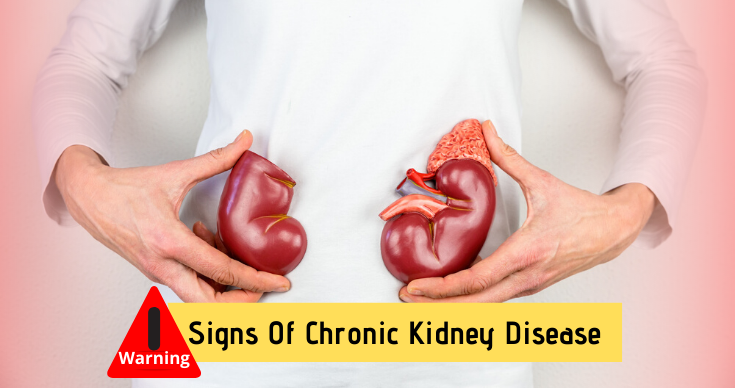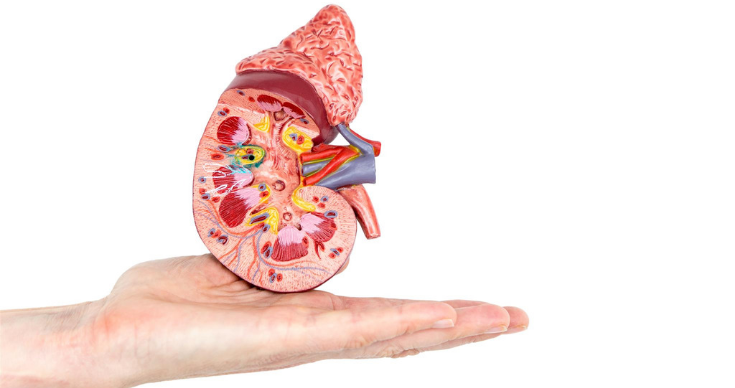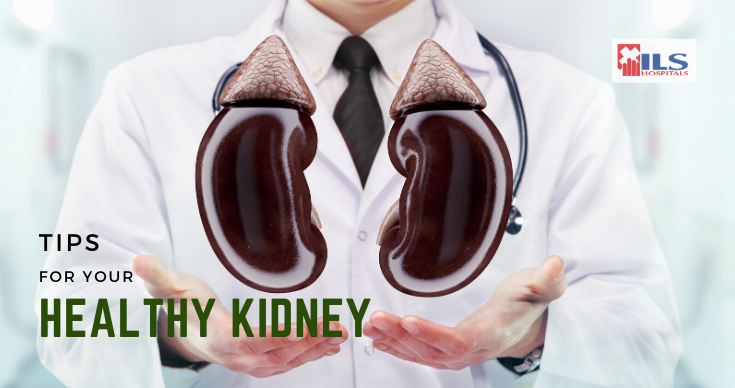Warning Signs Of Chronic Kidney Disease
Our body always gives us early warning signs of any serious medical condition, but a majority of people tend to overlook them which leads to critical harmful consequences.
The kidneys are our body’s filtration system. Our body’s biggest ordeal is to be filled with impurities and toxins, which is a consequence of CKD (Chronic Kidney Disease). The thumb rule is, whenever you notice the signs mentioned in this blog, without any delay of a second, consult a good kidney specialist to get the required treatment on time.
First, we will understand the meaning of chronic kidney or renal disease. It is the gradual loss of kidneys to function properly. Progressively, the kidneys stop functioning that leads to accumulation of waste material and toxins in the body.
Now, let’s look at the warning signs of chronic renal disease:
-
Poor Appetite or Appetite loss: It happens due to the build-up of toxins in the body.
-
Nausea and Vomiting: One of the most obvious signs of the chronic renal condition. If the symptom persists, get yourself examined immediately.
-
Proteinuria: Excessive protein (albumin) in the urine causes your urine to have foams and bubbles. It could be a sure indicator of chronic kidney disease.
-
Hematuria: Presence of blood in the urine is a forewarning of your renal dysfunction.
-
Frequent urination: It’s an obvious sign as your kidney does not work properly the way it should, forcing you to make more rounds to the washroom.
-
Muscle cramps: Due to fluid and electrolyte’s imbalances, you will suffer from severe muscle cramps and weaknesses. You will have bitter leg cramps if you’re developing chronic renal disease.
-
Swollen feet: If your ankles and feet are inflated, then, it might hint at chronic kidney disease.
-
Puffy eyes: The eyes become puffy and you get bags under your eyes due to proteinuria.
-
Dry, smelly and itchy skin: If your kidneys cannot filter blood congruously, the collection of waste material makes your skin to have a fetid smell and lose moisture.
-
Insomnia: A body full of toxins is not an ideal one. It is an understandable fact that it is difficult to sleep and relax with a toxic body.
-
Lack of concentration: Blame your contaminated body (a result of potential chronic kidney disease) for decreased attentiveness at school, college and workplace.
If you notice any of the above-mentioned signs, it’s time for you to have a discussion with a good nephrologist. You can come to ILS Hospitals, as we have expert kidney specialists in our team. Timely treatment is the ultimate way to overcome any disease.
A Brief Introduction To Advanced Renal Transplant
Our body has been designed to perform every crucial function quite effectively. Yet, it is quite normal to rely on medical treatment when our body becomes weak due to some disease or accidental injury. However, only medication cannot always fix every condition on its own. Kidney failure is one such condition that many times require extensive medical attention namely the renal transplant. Let’s understand more about renal failure and advanced renal transplant, as explained by our nephrologists.
Kidneys are a pair of a bean-shaped organ that filters the blood and flushes out the toxins in the form of urine. The kidneys are comprised of tiny filtration units which work so efficiently that even one healthy kidney can perform the overall function. Thus, it becomes quite tricky to detect a renal failure in its early stages. Nephrologists term Renal failure as the condition in which the kidneys lose more than 90% of their ability to function anymore. Renal failure can either happen due to chronic kidney disease or acute kidney diseases. Additionally, factors like chronic high blood pressure, diabetes can also uplift the chances of kidney diseases significantly.
Either way, it requires either regular dialysis or a renal transplant to make long term survival. Kidney transplant is a more preferable solution in comparison to a lifetime of dialysis ahead. Renal transplant is a surgical procedure to transfer a healthy kidney from a donor to a patient whose kidneys no longer performs. This functioning kidney can either be collected from a dead person (cadaveric donor) or from a living healthy donor. Usually, one healthy kidney is adequate to replace 2 failed kidneys. But it is not as simple as it may sound.
Renal transplant is an advanced treatment procedure that requires many prerequisites for it to become successful. Just like blood transfusion, there should be adequate compatibility between the donor and the recipient for renal transplant to work. Moreover, getting a donor often is time-consuming (between a few months to a few years) in case a compatible donor cannot be found on time. In such a scenario, the recipient will have to register their name on a kidney transplanting list, which determines several factors before one can get their scope of renal transplant.
This modern medical marvel has its downside as well. Mild infection, blood clot, and bleeding might arise after renal transplant, but, these can be treated well with mild medication. The main concern related to a renal transplant is organ rejection, in which the body of the recipient rejects the organ. But in some cases, this possibility can be minimized with the help of taking immunosuppressants. So, it is very crucial to carry out this surgery in an advanced hospital under expert nephrologists.
Renal transplant is an advanced medical procedure to ensure the patient with renal failure can lead a healthy life ahead. Through some risks are associated with it, the increasing numbers of success stories are inspiring people to consider this treatment for themselves or their loved ones. For more information regarding kidney diseases, renal failure, and renal transplant, consult with the highly experienced nephrologists at ILS Hospitals.
Super Tips To Keep Your Kidney Healthy
Kidneys are a pair of organs that filter the blood and removes any waste and toxins from the body. However, as even ‘one healthy kidney’ can function pretty well, detection of kidney disease becomes quite tricky. Here we bring some super tips, as per nephrologists, to keep your kidney healthy and disease-free.
1. Drink Plenty Of Water
Staying hydrated is always beneficial for everyone. This is particularity true to keep the kidneys healthy and active. So, try to include at least 1.5 to 2 liters of water each day. It helps the urinary system to remove toxins from the body as well reduce the chances of developing kidney stones and other common complications of kidneys.
2. Keep Diabetes In Leash
Diabetes and kidney complications are associated with one another. Thus, it is crucial to keep your diabetes in leash in order to minimize the risks of kidney illnesses in the future.
3. Keep Body Weight In Check
Being overweight brings many complications along with it. Kidney complication is simply one of them. So, staying in shape is a wise way to keep kidney complications at bay. Maintain a healthy body weight by doing physical exercise regularly.
4. Eat Healthy and Wisely
Eating a healthy diet is highly helpful for a healthy kidney. Reduce your salt intake and highly processed food. Instead, include fresh fruits and vegetables. Moreover, in case you are dealing with any kind of discomfort regarding kidney stone or gallstones, it is best to avoid the seeds of the veggies and fruits as much as possible.
5. Monitor Your Blood Pressure Profile
The normal blood pressure ranges from 120 to 80 mmHg. A persistently high blood pressure brings many challenges to kidney’s overall health and functionality. Keeping a tab on your blood pressure level is crucial from time to time.
6. Quit Smoking
Smoking does no good for overall health. Smoking hampers the blood flow to the kidney. Needless to say, when the kidney does not get an adequate blood supply, it affects their ability to function properly. Stop smoking reduces the chances of kidney cancer by about 50 percent.
You are also requested to avail the renal checkup to ensure complete care of your kidneys. Renal checkup packages are available at ILS Hospitals. You are particularity recommended towards the same, in case you have diabetes, obesity, hypertension, or have an immediate family member who also has any kidney complication.













